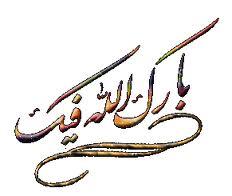يقول فيه:
إن الجدلَ الدائر حول لباسِ المرأة المسلمة قد بَلَغَ مرحلة العالميَّة، ففرنسا منذ وقتٍ قريب قامتْ بحظْر ارتداء الحجاب بين العامَّة، والآن سوريا أكثرُ البلدان العربيَّة عَلمانيَّة قامتْ بحظْر ارتداء النقاب بالمدارس، فطبقًا لتقرير نُشر على شبكة "npr" زَعَمَ رئيس مرصد شؤون المرأة السوري: أنَّ النقاب يُعْتبرُ مَظْهرًا من مظاهر العُنْف ضدَّ المرأة.
ومن باب التوضيح، فأنا لا أُؤيِّد إلزامَ أحدٍ بارتداء أو عدمِ ارتداء زيٍّ ضدَّ رغبته الشخصيَّة، وأرى -في زعْمه- أنه في حالة إجبارِ المرأة على ارتداء الحجاب أو الخمار من قِبَل السلطات الحكوميَّة أو الزوج أو الأب، فإنَّ هذا يعتبرُ خطأً يجبُ ألا يُسمحَ بمثله.
ولكنني سمعتُ وقرأتُ حوارات مع نساء ارْتَدَيْنَ الحجابَ أو حتى النقاب بكامل إرادتهنَّ؛ ولذلك فإذا أرادتِ المرأة ارتداءَه وشعرتْ بأنها مَلْزَمة دينيًّا بارتدائه طبقًا لاعتقادها، فعلى أيِّ أساسٍ تقوم أيُّ حكومة أو مُؤَسَّسة بمطالبتها بعدمِ ارتدائه؟
وبمفهوم أوسع، فلماذا تُستهدفُ هذه النوعيَّة من النساء؟ فالجماعات الدينيَّة الأخرى، ورُبَّما كل الجماعات الدينيَّة بها فئاتٌ ترتدي ملابس مُعَيَّنة أو تلتزم طريقة مُعَيَّنة في اللِّباس؛ فاليهود "الهازيدتش" يرتدون ملابسَ ذات طابعٍ "بولندي"، تعود للقرن الرابع عشر، و"المورمون" يرتدون ملابسَ المعبَد، وإن ستروها بملابس أخرى، وكذلك فرُهْبَان وراهبات البوذيَّة يرتدون معاطفَ خاصة، وطائفة "الهاري كريشنا" الهندوسيَّة يصنعون ضفيرة مع حَلْق سائر شعر الرأس، وأما اليهود "الأرثوذكس" فيرتدي ذكورُهم غِطاءَ رأسٍ، وترتدي الإناث ملابسَ ذات أكمامٍ طويلة وتَنُّورات ساترة للقَدَمَيْن، وغالبًا ما يرتدينَ الحجابَ فوقَ شعورهنَّ المستعارة اللازمة حسب تعاليم شعائر اعتقادهِنَّ، هذا بالإضافة إلى طبيعة ملابس القساوسة ونحوها؛ فلماذا إذًا لا يُطالب أحدٌ بحظْر كلِّ هذه الملابس، والتي تعتبر رموزًا ظاهرة دالَّة على الاعتقاد، مثل: ملابس "البندي" الهندوسية، والنقطة الموضوعة أعلى جبْهة المرأة الهندوسيَّة؟!
ولكن بكلِّ أسفٍ، فنحن دائمًا على استعداد لأن نُلحقَ الأُصوليَّة الدينيَّة والتقليديَّة والمحافظة بالإضافة إلى الإرهاب بالمسلمين في الوقت الذي لا نقوم فيه بمثْل هذا، إذا ما تعلَّق الأمرُ بالمعتقدَات الأخرى.
والواقع أنَّ كلَّ اعتقادٍ به أصوليُّوه الذين يحكمون على الاعتقادات الأخرى بالانحراف؛ لتبرير أعمالِهم، ويُعْتبر مَن يُنسَبون إلى التطرُّف من الإسلاميين هم أحدثُ الأمثلة المعاصرة.
والحقيقة أن وَسْمَ كلِّ المسلمين -خصوصًا المسلمات- بالتطرُّف أمرٌ عُنْصري، وأؤكِّد بجراءة أنَّه موقفٌ تحرِّكه دوافعُ شهوانيَّة من قِبَل مَن يزعم الاعتراضَ على النقاب تحت غطاء الدفاع عن المرأة المظلومة.
ومرة أخرى أؤكِّدُ أنني لستُ مع أو ضدّ مطالبة أيِّ أحدٍ في العالم بارتداء أيِّ شيءٍ خارج عن إرادته.
النص الأصلي:
Why Single Out Muslim Women?
The controversy over Muslim women’s dress is taking on global proportions. France، some time ago، banned the wearing of hijab، the head scarf in public، and now Syria، that most secular of Arab nations، has banned the niqab or full-face veil in schools. In a report on NPR the head of the Syrian Women’s Observatory (sic)، whatever that is، a man، made the dubious claim that the niqab constitutes "violence against women."
Let me be clear — I don’t support anyone being required to wear or not wear anything against their will. I agree that if a woman is forced to wear a head scarf or veil by her government or her husband or her father، that is wrong and should not be allowed. But I’ve heard and read interviews with women who wear the hijab and even the niqab voluntarily، who want to wear it، and who feel religiously bound to wear it by their own beliefs. On what grounds can a government or institution require that they not wear it، and isn’t such a requirement the alent of requiring someone who does not want to wear it to do so?
I suppose the argument will be made that women in the latter group have been brainwashed or some such thing and need to be protected، but even if we grant that (and I don’t)، isn’t that the selfsame paternalistic and patronizing attitude that the women’s movement has always been against?
More broadly، why is this group being singled out? Other religious groups — maybe every religious group — have groups that adopt a particular garment or style of dress. Some Hasidic Jews dress in clothes that were common in 14th Century Poland. Mormons wear "temple garments،" albeit under their clothes، Buddhist monks and nuns wear robes، Hare Krishna adherents wear a queue with the rest of their head shaved، Orthodox Jewish men wear skullcaps، and the women dress modestly in long sleeved blouses and long skirts، and often wear a head scarf over their ritually required wigs. Then there are priests’ collars، nun’s habits، monk’s robes، and on and on. Why is no one proposing banning all those as well as that most visible of symbols، the Hindu bindi or dot on the forehead?
Sadly، I think the answer is that we are all too ready to conflate religious fundamentalism، or even orthodoxy or conservatism with terrorism where Muslims are concerned، though we don’t do so nearly as much when it comes to other faiths. Every religion has its fundamentalists، and terrorists have perverted every world religion (except maybe Quakerism) to justify their crimes. Terrorists who act in the name of Islam are only the most recent and currently active example.
But to tar all Muslims (or in this case Muslim women) with the brush of terrorism is racist، anti-Muslim and، dare I say، sexist on the part of those who claim to be acting in these "oppressed" women’s interests.
Again، I am not advocating that one person in the world be required to wear or refrain from wearing anything against their will. I’m not even crazy about school uniforms or dress codes for the same reason. I am saying that I’m equally opposed to anyone being required to wear something they don’t want to or to refrain from wearing something that، as an adult، they choose for whatever reason to wear.

وجعله في موازين حسناتك